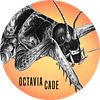You need to sign in or sign up before continuing.
Take a photo of a barcode or cover
4 reviews for:
Spelling the Hours: Poetry Celebrating the Forgotten Others of Science and Technology
R.B. Lemberg
4 reviews for:
Spelling the Hours: Poetry Celebrating the Forgotten Others of Science and Technology
R.B. Lemberg
A beautifully produced chapbook. I envy readers who will be reading these poems for the first time. I'd already read the first and last poems, and I contributed a long one in between, so my experience was not as immersive as a first-time reader's will be. That said, I was utterly transported by Mari Ness's "Madrepore," Mary Alexandra Agner's "Agnes Pockels Washes the Physics," and Sonya Taaffe's "Phliasian Investigations." I also enjoyed learning about Rózsa Péter, James Barry, and the "cover girl" Mary Alice McWhinnie.
Lovely little chapbook of poems that are specifically about science - often about scientists themselves, particularly those who have been historically marginalised in some way. Included as subjects, for instance, are Alan Turing and Lise Meitner, along with a number of lesser known scientists, many of whom I'm going to go and look up now. It's a short collection, only twelve poems (though some of these are fairly long) and I wish there was more of it because everything in here was well worth reading. It's taken some doing, but I think I've finally decided on my favourite: "noble, nobel" by na'amen, about three women who didn't win Nobel prizes. Mostly because I've written a novelette recently with the exact same premise and two of the same scientists, though where na'amen uses Jocelyn Bell Burnett I used Rosalind Franklin. Fascinating to come across something so similar and yet so different!
Spelling the Hours edited by Rose Lemberg, subtitle Poetry Celebrating the Forgotten Others of Science and Technology, is not the kind of book I would usually go out of my way to pick up, mainly because I don't read very much poetry. I'd glad I did, though.
The idea behind Spelling the Hours was to highlight some of the overlooked figures in science and technology. In practice, this means that it was a collection of poems about people other than straight cis men in science and tech. A lot of the poems were about women who did not get contemporaneous credit or recognition for their work. There was a lot of breadth in the topics covered from physics and astronomy to medicine and computing. Some of the names were familiar to me, like Jocelyn Bell and Lise Meitner, but most were not. I imagine that most readers will find at least some new names in this volume.
I'm not going to comment on every poem individually. One that particularly stood out to me was "Girl Hours" by Sofia Samatar, the last poem in the chapbook. It focusses on Henrietta Swan Leavitt and the "girl hours" used to perform calculations. I liked how it mimicked the structure of a scientific paper but in reverse and it was a poignant note to end the chapbook on.
They were all good poems though and I highly recommend this chapbook to fans of science and poetry and to anyone interested in hearing about some overlooked scientific names. I should add that, one of the reasons some of the names were familiar to me is because I am a scientist myself and some of these stories get around a bit more in the scientific community (I've seen an award named after Lise Meitner being presented and I heard about Jocelyn Bell pretty much when I learnt what a pulsar was). I imagine a different spread of names might be familiar (or more unfamiliar) to different people.
4.5 / 5 stars
You can find more reviews on my blog.
The idea behind Spelling the Hours was to highlight some of the overlooked figures in science and technology. In practice, this means that it was a collection of poems about people other than straight cis men in science and tech. A lot of the poems were about women who did not get contemporaneous credit or recognition for their work. There was a lot of breadth in the topics covered from physics and astronomy to medicine and computing. Some of the names were familiar to me, like Jocelyn Bell and Lise Meitner, but most were not. I imagine that most readers will find at least some new names in this volume.
I'm not going to comment on every poem individually. One that particularly stood out to me was "Girl Hours" by Sofia Samatar, the last poem in the chapbook. It focusses on Henrietta Swan Leavitt and the "girl hours" used to perform calculations. I liked how it mimicked the structure of a scientific paper but in reverse and it was a poignant note to end the chapbook on.
They were all good poems though and I highly recommend this chapbook to fans of science and poetry and to anyone interested in hearing about some overlooked scientific names. I should add that, one of the reasons some of the names were familiar to me is because I am a scientist myself and some of these stories get around a bit more in the scientific community (I've seen an award named after Lise Meitner being presented and I heard about Jocelyn Bell pretty much when I learnt what a pulsar was). I imagine a different spread of names might be familiar (or more unfamiliar) to different people.
4.5 / 5 stars
You can find more reviews on my blog.



